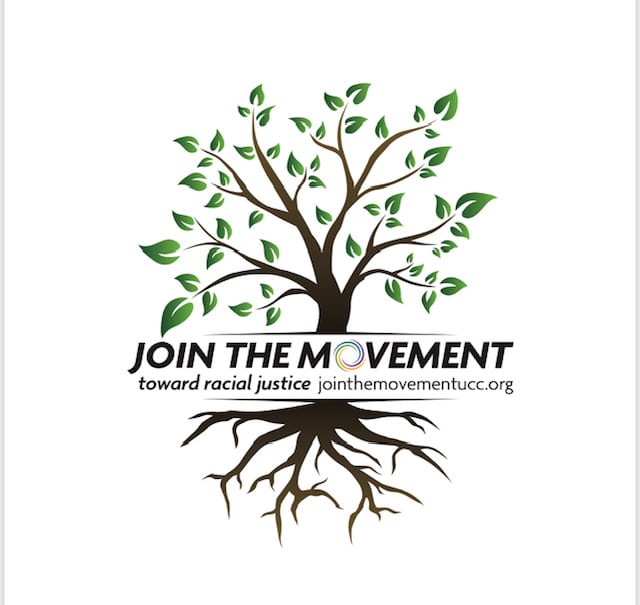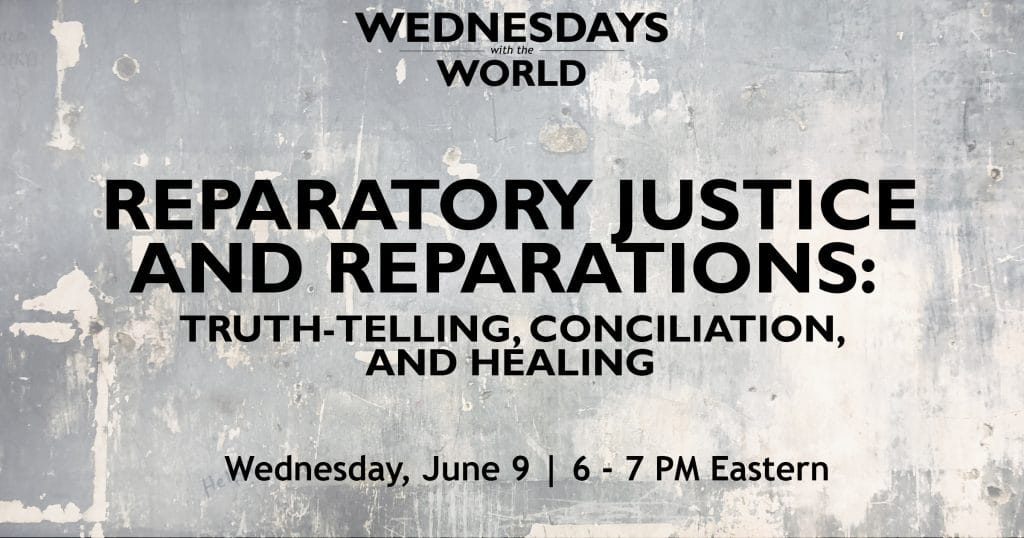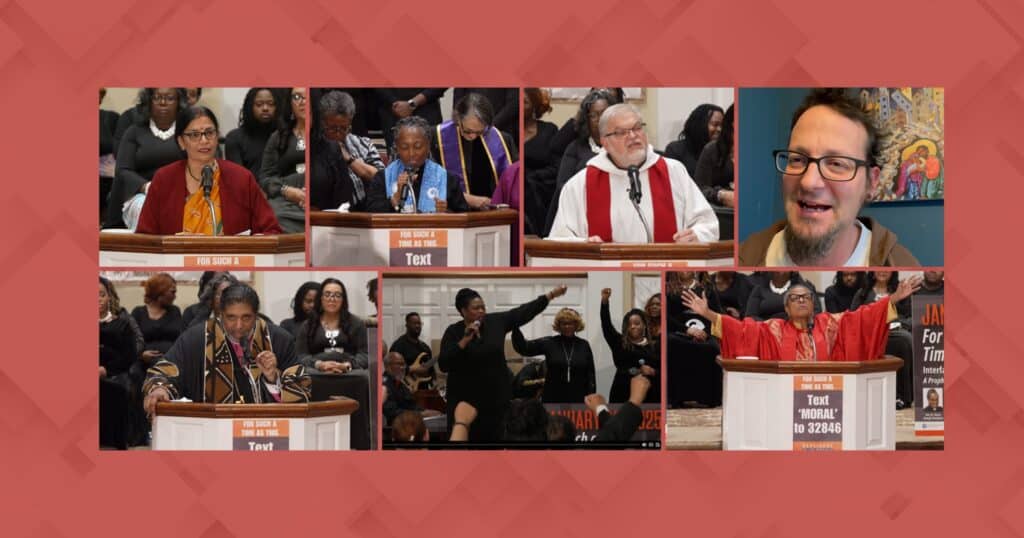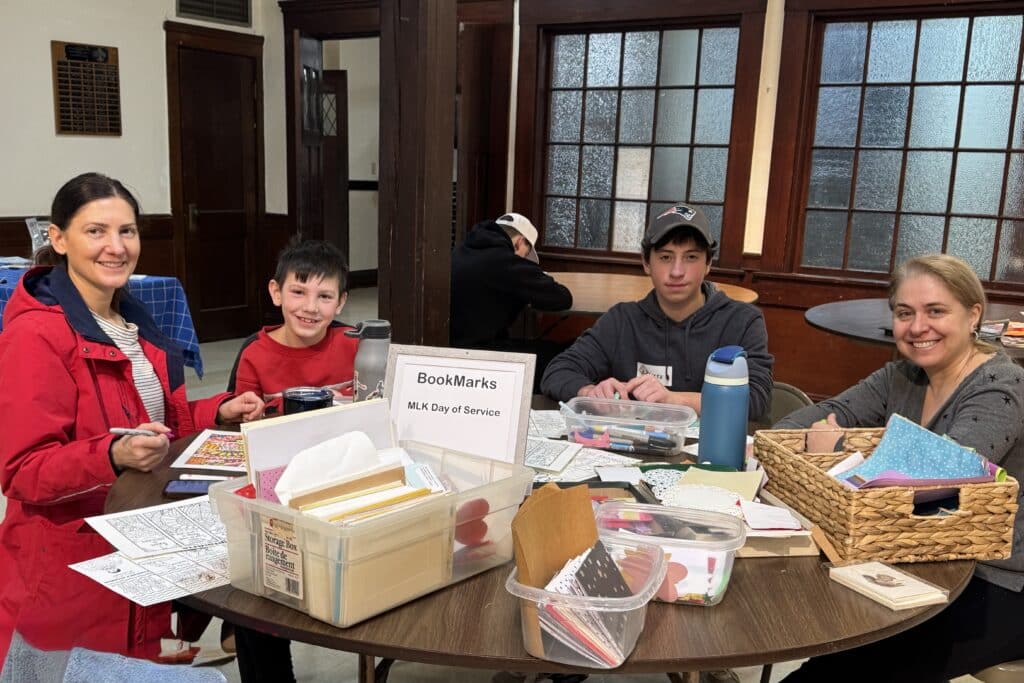June 9 webinar to kick off reparatory justice and reparations work
The United Church of Christ strives to “be a church where racism has no home.” This year in the UCC, racial justice will take many forms. One seeks to acknowledge the damages of white supremacy, seek forgiveness and explore ways to heal the wounds of those past sins.
On Wednesday, June 9, a 6 p.m. ET webinar will launch a national platform around reparatory justice and reparations.
“The case for reparations is a national and global movement for people of African descent — enslaved Africans and their descendants globally,” said the Rev. Velda Love, minister for racial justice, and moderator of the webinar. “Reparatory justice is also needed for descendants of Indigenous peoples – Native Americans, Latin Americans and Asian/Pacific Islanders/Hawaiians — whose legacies include genocide, theft of land, the denial of legal and human rights, and forced labor to build the wealth of Europe and U.S. territories.”
Introducing the process
The program, “Reparatory Justice and Reparations: Truth-Telling, Conciliation, and Healing,” will introduce the process to the wider UCC. Love has gathered a diverse working group – faith leaders who have been charged with creating an online learning platform that can engage the church in the study and process of reparatory justice. Register to participate here.
Here are the members of that working group:
- The Rev. Velda Love, Minister for Racial Justice, UCC
- The Rev. Trayce Potter, Minister for Youth/Young Adult Engagement, UCC
- The Rev. Monica Dawkins-Smith, Executive Associate, Wider Church Ministries, UCC
- The Rev. Rebekah Choate, Global Advocacy and Education Associate, Global Ministries
- The Rev. Brooks Berndt, Minister for Environmental Justice, UCC
- The Rev. Karen Georgia Thompson, Associate General Minister, Wider Church Ministries; Co-Executive, Global Ministries
- The Rev. Bernice Powell Jackson, Pastor, First United Church of Tampa, Fla.
- The Rev. Iva Carruthers, General Secretary, Samuel DeWitt Proctor Conference
- Conference Minister Edith Guffey, Kansas-Oklahoma Conference, UCC
- The Rev. Curtiss Paul DeYoung, Chief Executive Officer, Minnesota Council of Churches
- Jim Bear Jacobs, Director of Racial Justice, Minnesota Council of Churches
- The Rev. Sekinah Hamlin, Minister for Economic Justice, UCC
- The Rev. Linda Jaramillo, Executive Director, Center for Ministry in the West
“I am excited about the work of this working group,” said the Rev. Traci Blackmon, UCC associate general minister. “Some conferences and local congregations have already begun conversations around reparatory justice and it’s imperative that the national setting engage as well.”
Learning tools, legislation
“The working group will be working with me to develop online resources, learning tools, webinars, and to prepare ‘pew’ language regarding the movement for reparations,” Love said. While the topic is not new, Love acknowledged there are groups and churches discussing reparations without awareness of the others. “I’m positioning the UCC to be an incubator and reservoir for the intersectional work happening now and what’s to come.”
That includes advocacy around an historic piece of legislation, the Commission to Study and Develop Reparation Proposals for African Americans Act (H.R. 40), introduced in the U.S. House of Representatives. The bill would establish a commission to develop proposals and a “national apology” to help repair the lasting legacy of slavery.
UCC General Synods have passed 12 resolutions, and statements denouncing racism. In 2003, “Reparations: A Process for Repairing the Breach,” a study and discussion guide, was presented to the 24th General Synod.
Webinar agenda
The webinar on June 9 hopes to advance that work, touching on current issues involving reparatory justice, with several members of the working group acting as panelists and presenters. Here’s the lineup for discussion:
- General Synod 33: Introduction of Repairing the Breach and Reparatory Justice
- Black Wall Street 100th Commemoration
- Latin Americans in the U.S.: The Story We Tell
- Cultural Production – Land Rights & Workers
- Indigenous People’s History, Culture, & Identity
- The Bible and Theology Reimagined: Addressing Racism in the Christian
- The Case for Reparations and Repair
- The United Nations, Global Advocacy and the U.N. International Decade for People of African Descent
“We will define what reparatory justice is and is not,” Love said. “We will define the reparations work and the many intersections happening with the Minnesota Council of Churches, the U.N .Decade for People of African Descent, economic justice and the national movement of HR 40.
“We will be discussing the harm done to people groups based on settler colonialism and offer opportunities for a new movement of solidarity between cultures. We’re offering truth-telling from cultural perspectives and peoples who lost land, farm the land, and have never been compensated.”
Emphasis for next 2 years
“In this next biennium the collective work of the national setting will center on anti-racism work at the intersections of difference,” Blackmon said. “How does racism manifest among us at the intersection of multiple races, ethnicities, and identities? How does racism manifest at the geographical and ministry intersections we share?”
The UCC commitment to become an anti-racist church also involves an assessment of the national setting’s focus on racial equity and inclusion. The United Church of Christ Board recently chose Culture Brokers to review of the national ministries’ diversity efforts in tandem with a UCCB committee.
“Along with that self-evaluation of our policies and praxis,” Blackmon said, “the national setting will be launching a new campaign next month at General Synod. ‘Join the Movement toward Racial Justice’ will build on the UCC’s history and legacy toward racial justice, to tell the continuing story of our collective work toward being a church where racism has no home.”

The reparatory justice online learning platform will debut in 2022, in tandem with the Join the Movement campaign, and will offer a place of connection, informational and educational resources, and quarterly webinars.
“In 2021 the Christian Church has a responsibility to invite its members into conversations where people who have been harmed by the ideology of whiteness are the primary truth-tellers of their lived experiences,” Love said. “As we move deeper into understanding what it means to repair and heal our fractured nation and Church, we must first seek to know our neighbors.
“Every Christian should know the truth of their nation’s history because what is happening in contemporary society is directly linked to settler colonialism’s conquering narratives,” Love said. “Lean in and listen to the realities of the peoples who have suffered, resisted and speak openly about their lived experiences through the last 500 years of injustices.”
“Reparatory justice is the post-revelation work,” Blackmon said. “Reparatory justice is the post-repentance work. Reparatory justice is much deeper than restitution. It is the spiritual healing work necessary for wounds to heal even though the scar remains.”
“Jesus left sound words to live by — Love God and love your neighbor,” Love said. “Truth-telling, conciliation and healing is the way forward.”
Related News
Interfaith clergy speak out for love, justice, and the ‘holy work ahead’: Video highlights
When a group of United Church of Christ and interfaith clergy and people of faith gathered in...
Read MoreRemembering the Rev. Dr. Clyde J. Steckel: ‘He understood the value of covenant and lived it out’
If ever there was a person who could talk with great passion and write prolifically about the...
Read MoreCongregations answer MLK’s question, ‘What are you doing for others?’
Dr. Martin Luther King, Jr. once said that “life’s most persistent and urgent question is,...
Read More


